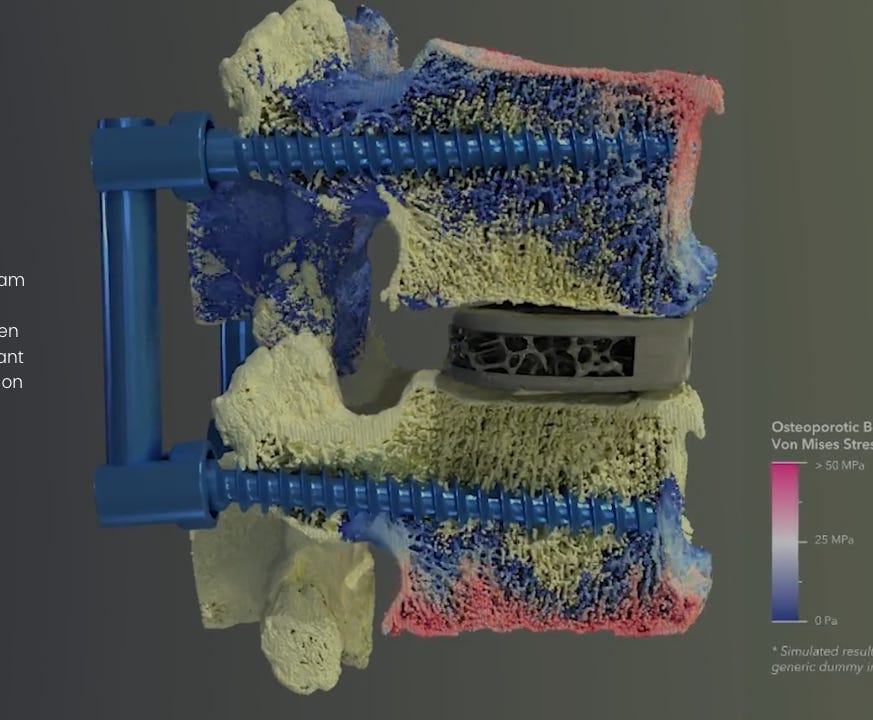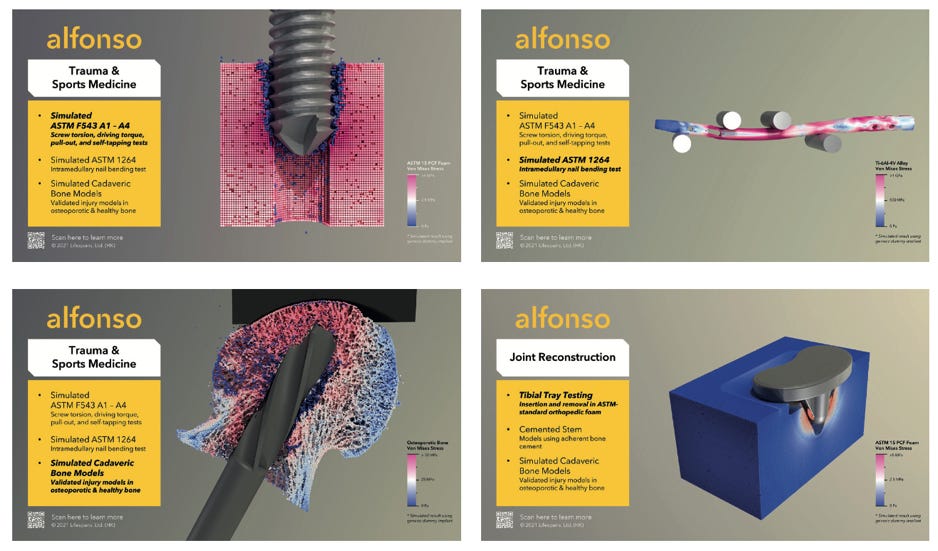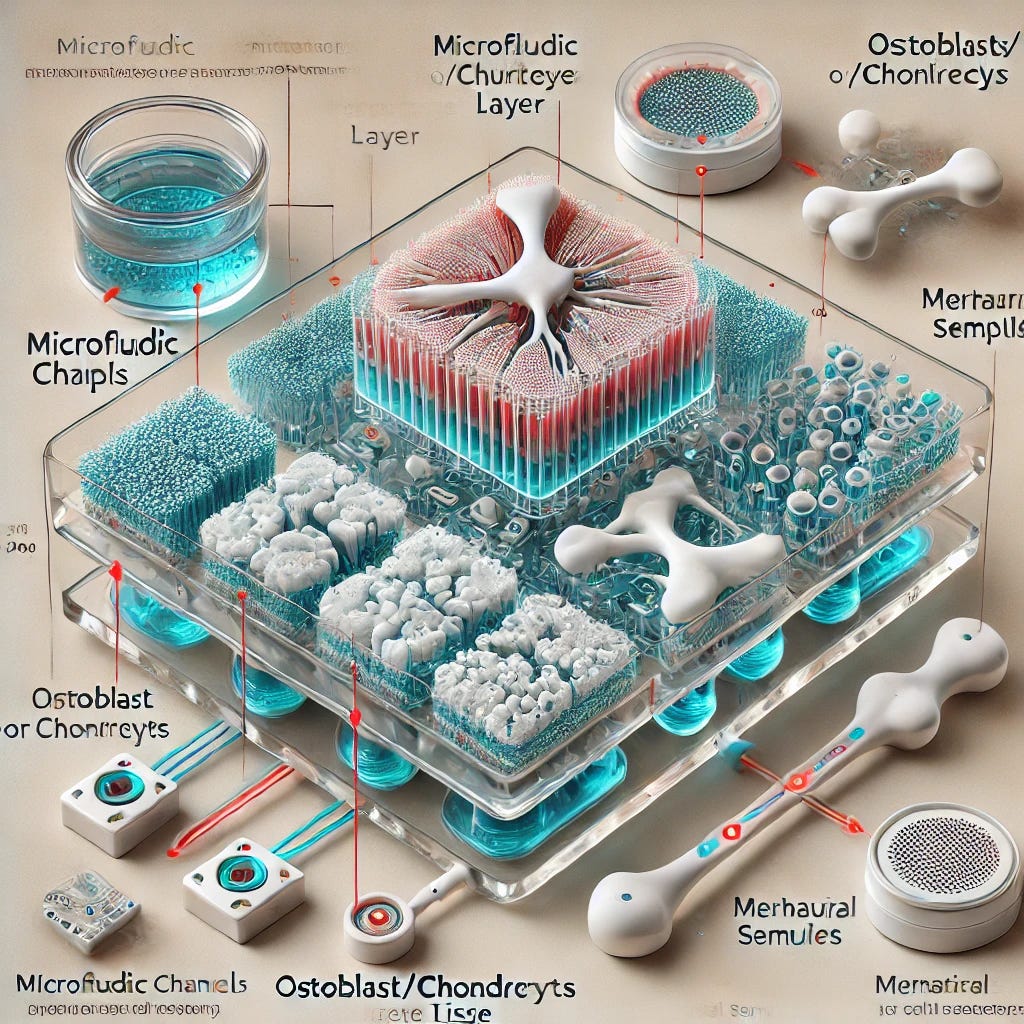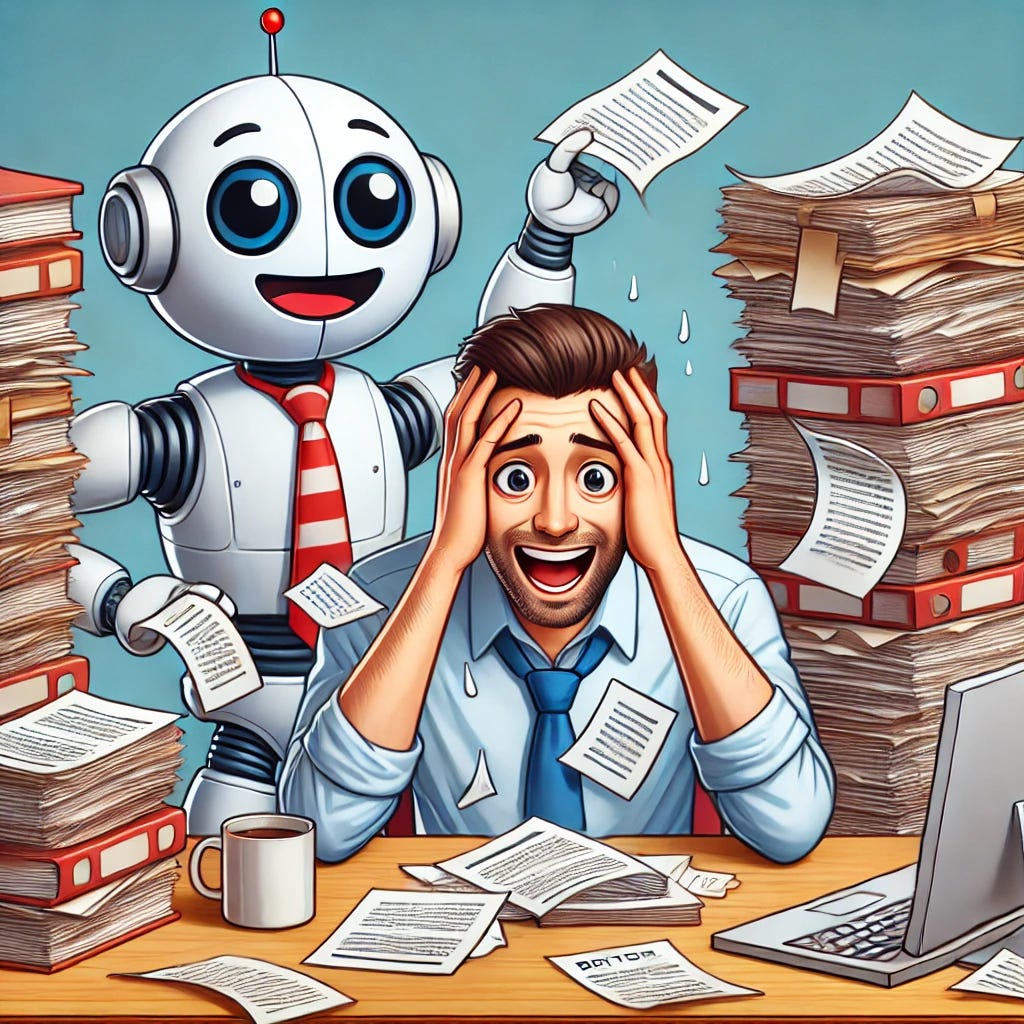Let’s shake off the usual grind
This Sunday, know 4 tools to help your research, brewing with bones
Let’s shake off the usual grind and dive into 4 awesome research tools we stumbled upon recently. With gems like these, we’re starting to think research might feel more like a treasure hunt and less like a never-ending chore!
NB: These are not paid promotions and these may not be free tools. Mind the costs
Is it Cloud-tested? #Alfonso
We all know that Orthopedic implants undergo multi-stage rigorous testing before getting permission to go into those shiny little packages. These tests can range from material compatibility to load cycling to failure. Rigorous testing means hi-tech labs, more materials, and eventually more investment and time.
Meet AlfonsoTM, from Lifespans. This Hong Kong-based biomedical company has devised a computer-based implant testing 10 times faster than traditional validated tests. They have a model library consisting of Foam, Bone and implants.
Anything from a simple screw pull-out to a press-fit Tibial tray can be tested within a single day. This allows filtering out defective designs at an early stage before taking your models to the labs and regulatory submission.
Your new research companion: #Scispace
Scispace is an AI-powered research tool that can make our lives so much easier when it comes to research or even reading a paper for that matter. There are so many cool tricks to the tool. You can ask to generate some cool concepts in your field of interest which are research-worthy and yeah you guessed it, you will be presented with a list! Come on! That can be done with ChatGPT as well, so what’s the hype?
You can upload a PDF and do so much with it; summarize, tabulate the results to use in a systematic review and even ask questions about the file to get a crisp and clear answer. It has AI writer support which doesn’t simply give word suggestions but sentences altogether and added to that, it can format your manuscript according to the journal guidelines, how cool is that! It has an in-built citation manager, collaboration is not a problem, and so on.
Free access is limited but fret not; it doesn’t break the bank. It costs less than 10 bucks a month. For the value you get, it is just “bang for the buck”. All in all, Scispace is a well-rounded research tool that can be used from the beginning to the end of a research project.
No more lab rats, Welcome Organ-on-a-Chip systems: #OcCs:
Gone are the days when we depended on animal models and in-vitro culturing to test novel treatment methods and drugs for orthopaedic ailments. Now we have Organ-on-a-Chip (OoC) platforms. These are devised to mimic the 3D tissue structures from the native human cells and possess the essential functional attributes of the native counterparts for specific applications. OoC comprises 4 basic components: a microfluidic chip, live cells, stimulus/drug delivery, and sensing modality.
In the orthopaedic front, OoC is extensively being utilized for understanding the extracellular matrix changes in various diseases that could be potentially modulated in diseases for therapeutic purposes. The current research involves the utilization of OoC models for novel treatment testing in conditions like osteoporosis, Paget’s disease, fractures, osteomyelitis, bone tumours, sarcopenia, osteoarthritis and rheumatoid arthritis. This research tool shortens the timeline involved in the traditional pathway with a detailed understanding of the pathogenesis at a microscopic scale on a live model.
A comprehensive tool for systematic review - #LaserAI:
Authoring systematic reviews? Are you a team player? then Laser AI is for you!
Laser AI is an advanced systematic tool designed to make the process faster and smarter. If you've ever done a systematic review, you know how time-consuming and tedious it can be to sift through hundreds (or thousands) of studies, figuring out which ones are relevant. That’s where Laser AI comes in.
Laser AI includes the merits of tools like Rayyan and ASReview, and takes things up a notch with its continuous active learning (CAL). As you review studies, the tool learns from your choices and quickly starts to prioritize the most relevant papers. It's like having a personal assistant who gets better at their job the more you work with them. Its data extraction tool is a hidden gem. It can capture data for you from tables and results of included studies - compare and tabulate them in a few clicks
Laser AI can handle huge databases, pulling in studies from all over, and helping you filter them with fewer clicks. The user interface is cleaner, with better visuals and some incredible collaboration features—perfect if you're working with a team.
In short, if you want to do your systematic reviews faster, with fewer headaches, and smarter automation, Laser AI is the tool to beat.
Events to check out:
Events:
IOACON 2024 2 – 7 Dec 2024 - Bangalore, India
AAOS 2025 11 – 15 Mar 2025 - San Diego, USA
4th Annual Meeting SIAGASCOT 27-29 Mar 2025 - Naples, Italy
See you next month. Have a fabulous month ahead folks.








